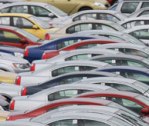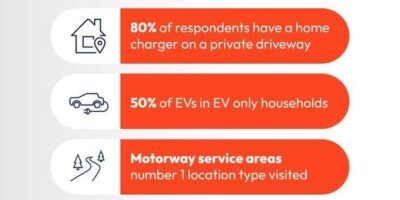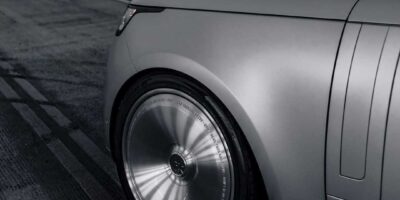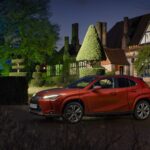Almost a fifth (18%)3Â of small business leaders say the sheer pace of the fast-moving world of e-commerce and the rising demand for deliveries is the biggest business challenge they face logistically, closely followed by the ability to keep up with regulation changes (17%)4.
Small businesses surveyed across the globe also highlighted changing customer expectations for delivery times (12%)5Â and urban traffic and congestion (11%)6Â as key concerns.
While 40% of small businesses feel well set up for the increasing demands of e-commerce7, research commissioned by the Renault-Nissan-Mitsubishi LCV business – which is part of the Alliance, the world’s leading automotive partnership – has shown that almost a third (30%)8 believe their business is not ready for these demands as they need smarter technology.
These businesses have cited the need for smarter technology to improve delivery efficiencies, particularly companies with fleet sizes greater than 25 vehicles (45%)9.
With tech front of mind for driving business efficiencies, 70% of all small businesses believe that better connectivity could improve their business10. In addition:
35% of small businesses already using smarter technology in their fleets said that business efficiency is the leading motivation for upgrading their vehicles11, followed by cost-savings (21%) and increased sustainability (14%)12.
The ability to speak with companies and individuals to whom they are delivering is considered the leading benefit of connectivity for 30% of small businesses13.
29% of respondents also believe the capacity for vehicles in their fleets to communicate with each other is a key advantage of connectivity14, while 21% hope to use their vehicles as a third screen15.
55% predict their fleets will be fully autonomous in the next 20 years with 38% believing this may happen in as little as in 10 years16.
Ashwani Gupta, Senior Vice President of the Renault-Nissan-Mitsubishi LCV business, said: “As on-demand consumerism continues to rise, this is a crucial moment to ensure small businesses feel empowered to succeed in e-commerce. We’ve heard from business leaders themselves that prioritising smarter technology for fleets will help to reach their customers with increased speed and scale – factors that are becoming ever more crucial for survival in this space.
“The Renault-Nissan-Mitsubishi LCV Business recognizes the importance of smart technology to increase efficiency and continues to work together to develop connected and autonomous vehicles that cater to the needs of business fleets of all shapes and sizes.â€
Renault offers fleet management services for its commercial line-up. Renault EASY CONNECT for Fleet is an ecosystem of connected services for business users that simplifies managing vehicle fleets and reduces running costs.
The survey also looked at the wider expectations for autonomous and electric vehicle technologies, which are primed to bring far-ranging benefits and efficiencies to business fleet owners. Encouragingly, business owners in multiple countries and from a variety of sectors, including retail, catering and leisure, sales, media and marketing and healthcare, are recognizing this technology as being the future of the logistics industry. This was reflected in Renault-Nissan-Mitsubishi’s latest LCV business sales, which saw a 13.5% year-on-year increase, in part due to Renault’s European EV van leadership, with a 46.2% market share. Reaching almost 2 million units, the numbers of trucks, vans and frame-based SUVs sold in FY18 was the highest number of sales in the organization’s history.
Between now and 2022, the Alliance will launch 12 new zero-emission electric vehicles, utilizing new common electric vehicle platforms and components for multiple segments. Over the same period, 40 vehicles will be introduced with different levels of autonomy, all the way to fully autonomous capability.
Groupe Renault, whose electrified LCV line-up is comprised of the Kangoo Z.E., Master Z.E., Twizy Cargo, and Zoe Societe, has announced that 100% of its vans will be electrified by 2022. The Nissan e-NV200 small all-electric van is seeing a significant upswing in demand. In 2018, production was up by 50% compared to the previous year to reach a total of 6,000 units. Mitsubishi offers the MINICAB MiEV van in Japan as well as commercial versions of the Outlander PHEV in some global markets.








